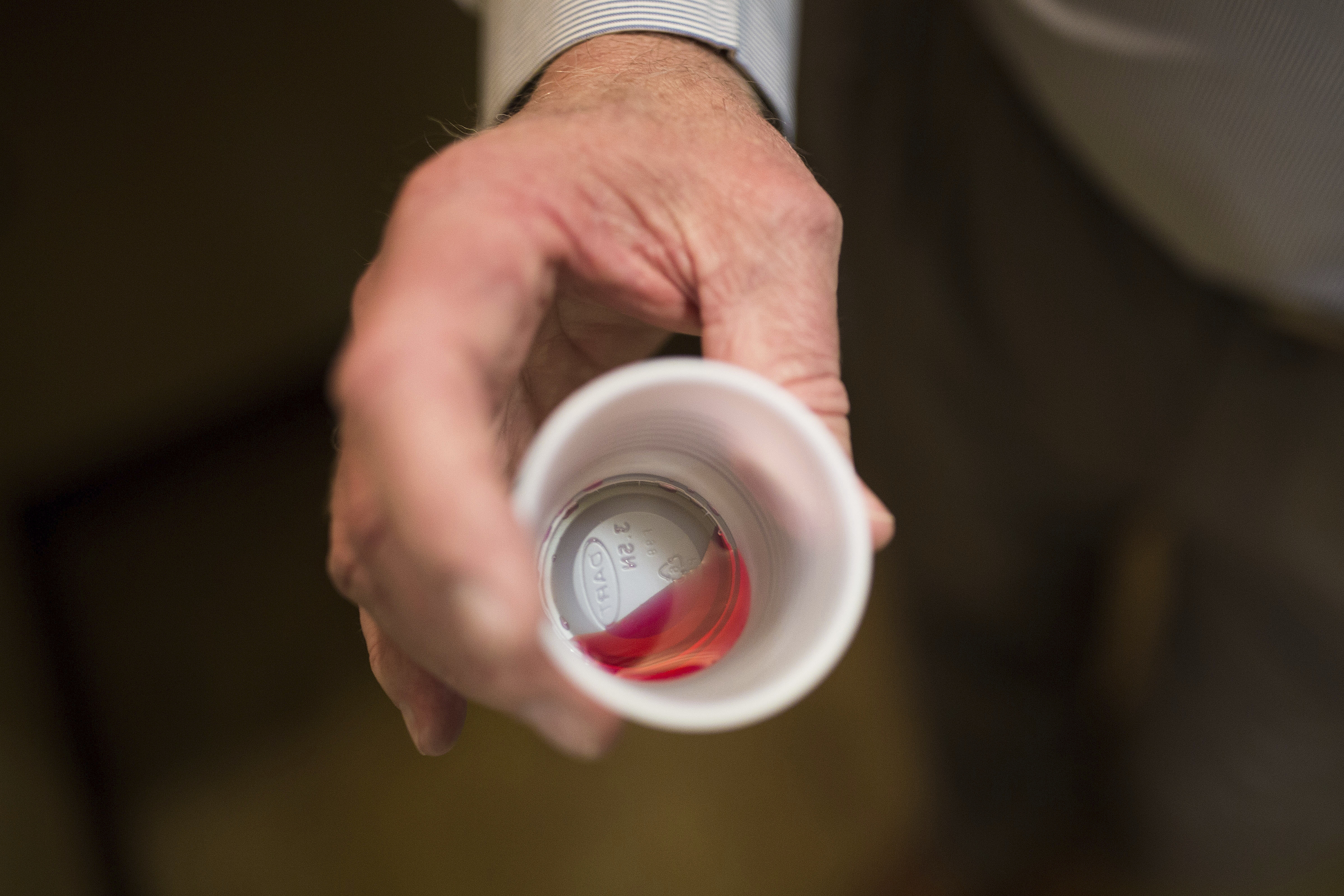Remarks by a top U.S. health official have reignited a quarrel in the world of addiction and recovery: Does treating opioid addiction with medication save lives? Or does it trade one addiction for another?
Health Secretary Tom Price’s recent comments — one replying to a reporter’s question, the other in a newspaper op-ed — waver between two strongly held views.
Medication-assisted treatment, known as MAT, is backed by doctors. Yet it still has skeptics, especially among supporters of 12-step programs like Narcotics Anonymous, because it involves opioid-based medications.
Price appeared to side with that camp when he said during a recent visit to Charleston, West Virginia: “If we just simply substitute buprenorphine or methadone or some other opioid-type medication for the opioid addiction, then we haven’t moved the dial much.”
But in an opinion piece published last week in the Charleston Gazette-Mail, he twice mentioned his agency’s support for medication-assisted treatment. Here’s a closer look.
Hoe Medication Can Treat Addiction
Because of how opioids act on the brain , people dependent on them get sick if they stop using. Withdrawal can feel like a bad flu with cramping, sweating, anxiety, and sleeplessness. Cravings for the drug can be so intense that relapse is common.
Medication-assisted treatment helps by moving a patient from powerful painkillers or an illicit opioid like heroin to a regular dose of a legal opioid-based medication such as buprenorphine or methadone. The ideal dose is big enough to fend off withdrawal, but too small to produce a euphoric high. Patients can drive, rebuild relationships, and get back to work.

In this March 7, 2017 file photo, Paul “Rip” Connell, CEO of Private Clinic North, a methadone clinic, shows a 35 mg liquid dose of methadone at the clinic in Rossville, Ga. May 9 remarks by Health and Human Services Secretary Tom Price about medication-assisted treatment for opioid addiction have reignited a debate in the world of addiction and recovery. (AP Photo/Kevin D. Liles, File)
“They’re not walking around high” and it gives them the chance to practice new ways of coping with family and psychological issues, says Dr. Joseph Garbely of Pennsylvania-based Caron Treatment Centers.
With counseling and education about addiction, patients can get back on track. They eventually can taper off medications, but some take them for years.
What Research Says
Researchers studying these treatments use drug screening to see whether patients are staying off illegal drugs. If someone uses heroin while in treatment, it shows up in their urine.
A 2014 review of 31 studies found methadone and buprenorphine keep people in treatment and off illicit drugs.
The review by the Cochrane Collaboration, an international group of scientists that evaluates research, found each drug worked better than a dummy medication. A side benefit worth noting: Methadone also helps prevent the spread of HIV by reducing needle sharing, a different research review by Cochrane found.
Methadone and buprenorphine can be abused and both can cause overdoses, particularly methadone. But researchers have found that methadone prevents more overdose deaths than it causes.
For most patients, medication combined with counseling is superior to other strategies, according to the American Society of Addiction Medicine.
Other Options
“What’s right for one person isn’t necessarily right for another person,” Price said during a May 9 visit to West Virginia.
When asked whether he and his team leaned toward medication or faith-based approaches to opioid addiction, his reply lined up with those who favor abstinence.
Abstinence-only philosophies “are not scientifically supported,” according to the first surgeon general’s report on addiction, published in November.
Yet people who describe themselves as in recovery consistently say abstinence is important. All told, remission from opioid addiction can take years and multiple tries at treatment.
“The public needs to know that there are proven, effective treatments for opioid addiction,” former U.S. General Vivek Murthy told The Associated Press. Murthy was fired by the Trump administration after he refused to resign.
Price also mentioned a non-opioid alternative — namely an injection of naltrexone called Vivitrol — as “exciting stuff.” Vivitrol, a newer drug, can be used only with patients who have completely detoxed and has a limited track record compared to buprenorphine and methadone. Early studies have shown promise, but relapse is a danger after injections stop.
Health and Human Services spokeswoman Alleigh Marre told AP that Price’s comments don’t signal a policy change. Price “has argued that we should be open and supportive to the broadest range of options, from medication-assisted treatments – including methadone, buprenorphine, or naltrexone – to faith-based recovery programs,” Marre said.
Not informing patients about the effectiveness of treating addiction with medication is like a doctor not telling a cancer patient about chemotherapy, said Dr. Mark Willenbring, a former director of treatment research at the National Institute for Alcohol Abuse and Alcoholism. “Scientifically, this is a settled matter.”




